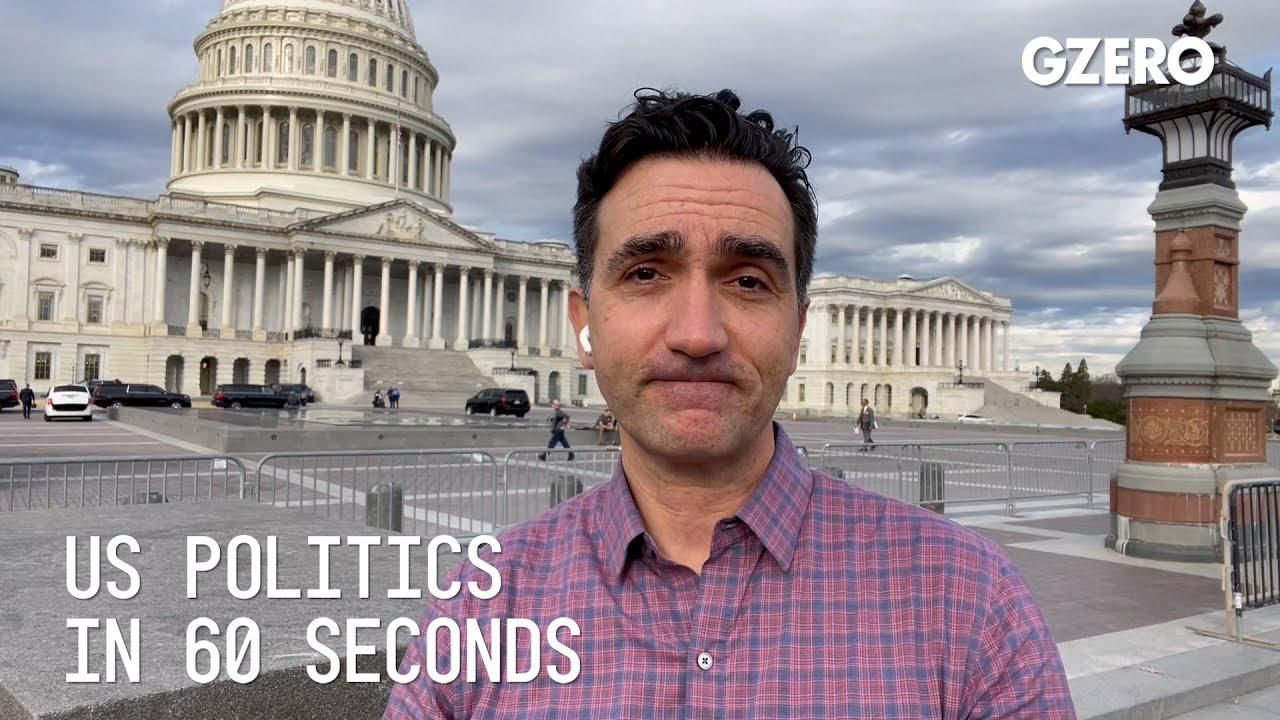US Politics In 60 Seconds
Speaker vote mess shows how ungovernable US House is

Speaker Vote Mess Sows How Ungovernable US House Is | US Politics In :60 | GZERO Media

Jon Lieber, head of Eurasia Group's coverage of political and policy developments in Washington, DC shares his perspective on US politics.
What are the implications of the House failing to elect a speaker this week?
Well, I'm down here at the US Capitol where Kevin McCarthy has failed on multiple ballots this week to receive the 218 votes that he needs to become House speaker. And if you're a political junkie, this is really your week. You've got multiple ballots, warring political factions, you've got backroom deals. But the reality is the implications of this in the real world aren't that great. It's a historical anomaly, hasn't happened for over 100 years, but the House wasn't going to pass that much meaningful legislation this year anyway. So a delay in organizing doesn't matter all that much. And whoever the speaker is, they're probably going to end up being pretty weak and any legislation they do achieve will just be either ignored or rejected by the Democrats who control the Senate.
One major implication coming out of this, however, is that it's a clear sign of how ungovernable the House is, with a small faction of Republicans who are willing to derail normal legislative business. This will be relevant later in the year when the US has to increase its borrowing limit. Otherwise, it risks a first ever default. And the signal that we're getting from the House right now is that you've got a lot of members who are unwilling to go along with business as usual and are going to make that fight particularly difficult, very similar to what it looked like in 2011.
Another important implication from the week is the weakness of former President Donald Trump, who publicly came out and endorsed Kevin McCarthy, has privately called members urging them to vote for him, and has largely been ignored. And this is very different than the great and powerful Trump that we saw over the last six years who had a lot of influence to push Republican members to vote the way he wanted them to. So this is a sign of Trump's weakness and an indication that we're very likely going to get a very competitive Republican presidential primary leading up to 2024.
In this Quick Take, Ian Bremmer examines what may come next in the US-Israel war with Iran as the Trump administration signals significantly larger military operations ahead.
Indian Prime Minister Narendra Modi and Canadian Prime Minister Mark Carney struck a series of deals during a meeting in New Delhi on Monday, including a 10-year nuclear energy deal under which Canada will provide India with uranium.
A satellite image shows black smoke rising and heavy damage at Iranian Supreme Leader Ayatollah Ali Khamenei's compound, following strikes by the United States and Israel in Tehran, Iran, on February 28, 2026.
Supreme Leader Ali Khamenei is dead, the conflict is spreading, and US President Donald Trump still isn’t clear on who he wants to run Iran.
Shipping in the world’s most crucial oil chokepoint has nearly ground to a halt after at least four tankers were targeted in Iran’s retaliation to US and Israeli strikes on Saturday.